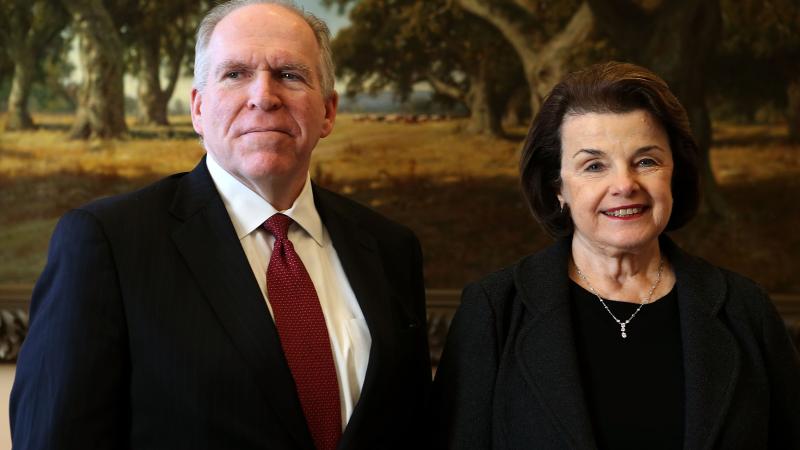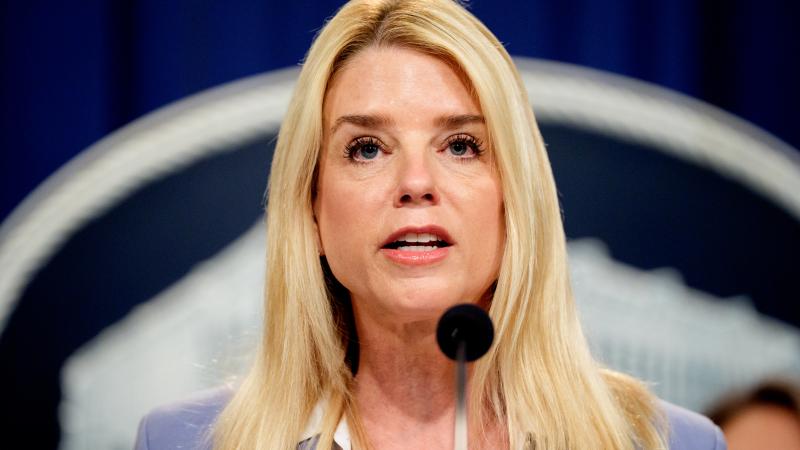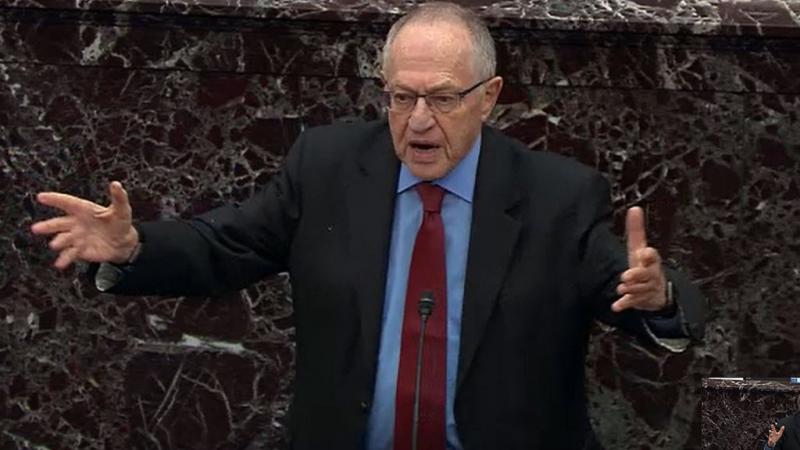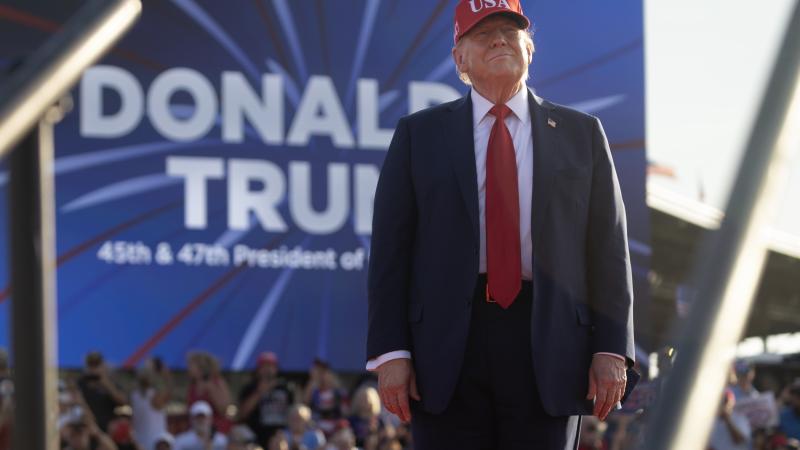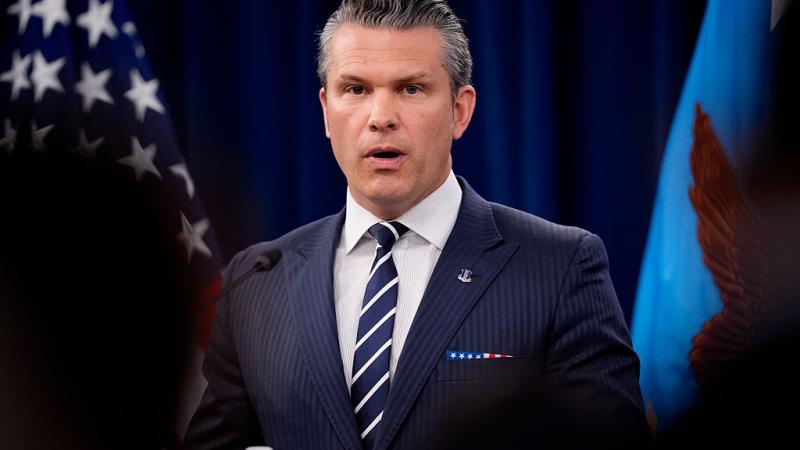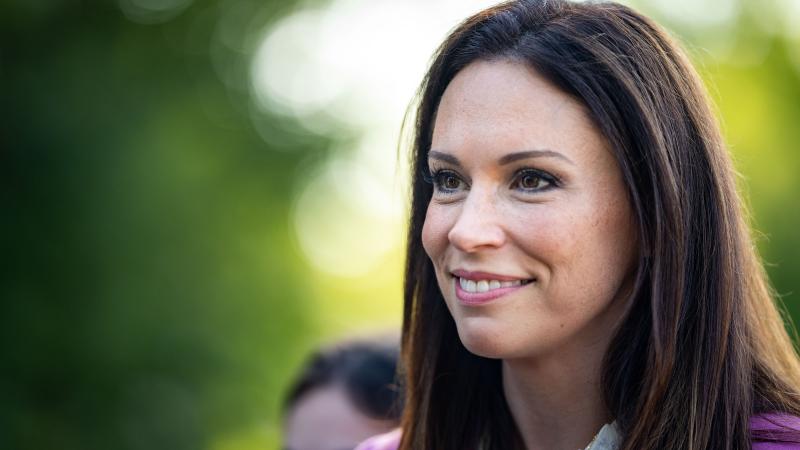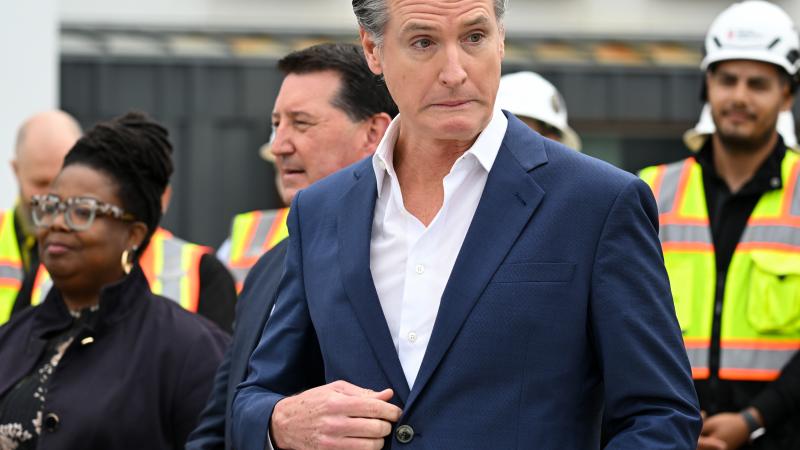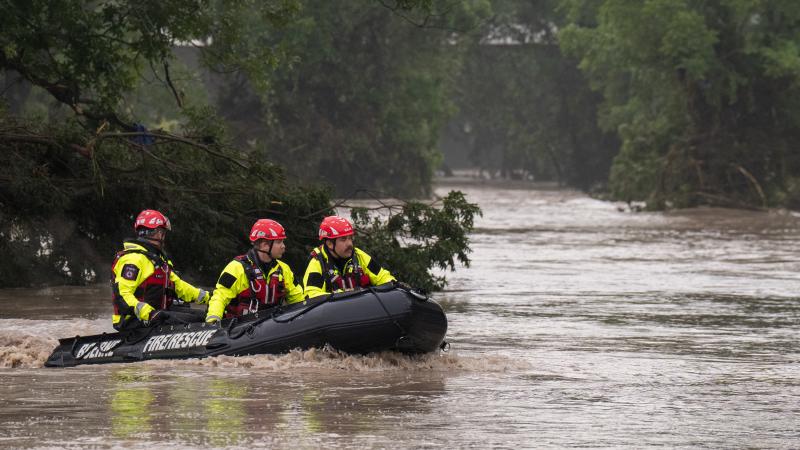Covid-19 information manipulation and: What’s convalescent plasma therapy?

I sort through the emerging news on antibody studies and how many people already had Covid-19 but never knew it. Why this should not be the surprise some are making it out to be.
Also:
Miami Mayor Frances Suarez becomes Florida's first coronavirus plasma donor. He will talk about this FDA approved experimental treatment.
Subscribe to my two podcasts: “The Sharyl Attkisson Podcast” and “Full Measure After Hours.” Leave a review, subscribe and share with your friends!
Order “Slanted: How the News Media Taught Us to Love Censorship and Hate Journalism” by Sharyl Attkisson at Harper Collins, Amazon, Barnes & Noble, Books a Million, IndieBound, Bookshop!
Visit JustTheNews.com, SharylAttkisson.com and www.FullMeasure.news for original reporting.
Do your own research. Make up your own mind. Think for yourself.
Full transcript:
Sharyl Attkisson:
Hi everybody, Sharyl Attkisson here. Welcome to another edition of The Sharyl Attkisson Podcast on justthenews.com. A digital news site dedicated to facts not spin, and reporting on under-reported stories and views that cut across the grain. I hope you'll subscribe to my podcast and all the Just The News podcasts, including John Solomon Reports and The Pod's Honest Truth. Today I have an update on a flurry of coronavirus scientific developments and questions, plus how convalescent plasma therapy could be a treatment for some.
I hope you'll consider preordering my new book coming out, Slanted: How the News Media Taught Us to Love Censorship and Hate Journalism. As always it seems to me the subject of my books is right on point with what's happening in the news today. It's been odd for me to watch and read the news and listen to some scientists, or read their opinions in the past few days. Here's why. Many are now saying it's starting to look like COVID-19, this strain of coronavirus, is more common than we knew. That a lot of patients had it without knowing it. That they had no symptoms or their symptoms were so mild they were never diagnosed. Numerous studies are now bearing that out with hard data. Now a reminder that this discussion as always is not doubting or downplaying coronavirus. It's a very serious illness obviously. It's fatal for people especially those at high risk.
I wouldn't want to get it. I wouldn't want anybody I know to get it. It's a terrible thing and it's been very widespread especially in places like New York city. But just going off facts and asking questions about the unknowns. When some are trying to insist the unknowns or somehow decided and the question shouldn't be asked. Just asking those questions has become controversialized by people trying to shape our information. But back to how strange it is to watch the news and hear the scientists as if they're surprised to know now that a lot of people have had coronavirus, because their antibodies are showing up in their system and these tests, but they didn't even know they have it. Here's why it's strange for me, because one of the first things I remember hearing about coronavirus many weeks ago, was that something like 86% were believed to have no symptoms and be undiagnosed.
This was coming from medical authorities early on and it stuck in my head. It's not new. And it shouldn't be a surprise to public health experts or news reporters, or some scientists who are acting as though this is new and emerging information. And I'll prove it by giving you some references. There are so many. But you could look at an Agence France-Presse article from February 19th, 2020. So we're talking more than two months ago. And it talked about in the broadest to be believed studies at the time from China. Some 80.9% of infections were classified as mild. Perhaps even undetectable by the person who is infected. The name of this study it was titled Vast Majority of Coronavirus Infections Are Mild. That's the name of the news report actually by Agence France-Presse on this study. So again, February 19th more than two months ago it was already being reported that the vast majority of people who have coronavirus, don't even know they have it or have symptoms that are so mild they may never be diagnosed, 80.9%.
Here's another one for you. There was an article in Business Insider talking about the same thing. It said, "The biggest breakdown yet of novel coronavirus cases suggest that 80% are mild. Some patients never show symptoms." Again that's more than two months ago. Let's look at something about the same time period. There were studies that the CDC website refers to addressed Coronavirus Information. As far back as February and early March. CDC says, "We now know from recent studies that a significant portion of individuals with coronavirus lack symptoms." The CDC links to and refers to studies such as one in The New England Journal of Medicine on March 5th. There was a study on February 21st. But here's the biggie. This is a study that you can look up for yourself, that is probably about four weeks old. And you can find it at sciencemag.org. You could look it up under the heading, substantial undocumented infection facilitates the rapid dissemination of novel coronavirus. Substantial undocumented infection facilitates the rapid dissemination of novel coronavirus.
What does this study say? It says, "We estimate 86% of all infections were undocumented." 86% of all infections undocumented. That means as we have been discussing, not just a few but the vast majority of coronavirus infections are presumably undetected. People don't know they had it, or they have such mild symptoms they don't get treated, they don't get diagnosed. This is not uncommon. I spoke with a virologist who works with coronavirus, who told me that similar things are true of other viruses. So again this should not have been a surprise to scientists. I don't think it was. Some are now seeming to express some surprise that it's turning out that way saying, "Wow! Maybe the fatality rate is lower than we thought because more people have had it." But they should have known that on the front end. So the virologist that I spoke to who works with coronavirus, told me that approximately 75% of the people who get the flu, carry it and don't know it or have symptoms that are so mild they don't get diagnosed.
So this is not again an unheard of phenomenon. Is something that science expects. Which has made a lot of the reporting that I've seen not always make a whole lot of sense. Here's an example. There was discussion pretty early on about the so-called patient zero in Seattle. The person that they're talking about may have been the guy or they actually say was the guy, who brought coronavirus virus from China to Seattle. And this is an article from Bloomberg on March 10th. You can look this up by searching for, Seattle's patient zero spread coronavirus despite Ebola style lockdown. Again the Bloomberg article which I found at msn.com originally, says, "Seattle's patient zero spread coronavirus despite Ebola style lockdown, from March 10th."
The whole article traces the man they call, the one who had become patient zero for the new coronavirus outbreak in the US. And I'll just read you the first line from the article. It says, "That he appeared to do everything right. He arrived January 19th at an urgent care clinic, in a suburb North of Seattle with a slightly elevated temperature, and a cough he developed soon after returning four days earlier from a visit with family in Wuhan China." And the whole article goes on to trace the movements of this man. And how he was diagnosed, isolated himself. How they tracked down the people that they could, that he'd been in contact with. How they said none of them got sick, but then they conclude they must have missed somebody because then this epidemic started in the Seattle area.
Well, this makes no sense if you look at the notion that 86% of those who have coronavirus approximately don't have symptoms. What would make anybody think that the one man they found, the first person they happen to test, was the first person who had come over into the United States with coronavirus, if 86% of them have no symptoms and can still be spreading it?
What makes them think that he was the source and they just don't know how it jumped from him to these other people, when they checked everybody they could and he didn't make anybody directly around him sick. Why don't they think that instead there were other people that came from China, or who maybe came even weeks earlier, that had this with no symptoms and was spreading it around. Now that's just me a nonscientist thinking about it. But I've since spoken to numerous scientists working with coronavirus and they agree. That there's no way to identify they say the patient zero at this point who came into the United States first. In fact most of these scientists theorize that coronavirus has been here longer than we knew, for the reasons that we've stated. Perhaps weeks, perhaps even late last year.
So another sort of inconsistent thing that's come up that I've written and talked about in recent weeks. Remember Dr. Fauci said publicly over and over again, that coronavirus was 10 times deadlier than flu. And I know he said this at least sometimes without caveats. These were all estimates and guesses until the hard data comes in and we didn't have the hard data. We didn't have the proof according to scientists who weren't speaking out, but we're noticing the same thing I was. That things were being said as if they were firm and proven, when they could not have been yet. And again this is not to downplay coronavirus or suggest that the steps that were taken should not have been taken. But we need to be sure that reporters are asking the right questions. That we're operating off the best information we can get. And at a time when things are not firmly defined and there are many possibilities, we shouldn't lock in on one to the exclusion of others.
Well anyway, Dr. Fauci has repeatedly said, "This is 10 times deadlier than flu," COVID-19. But as I've pointed out, he reported in an article in The New England Journal of Medicine, in a scientific magazine, that he suspected this will be closer to the death rate of a [bird 00:10:48] flu season. Not 10 times deadlier than flu, closer to 0.1%. And Dr. Fauci or his coauthors never clarified publicly when I asked which one was right. But it starting to look as of now, as of the recording of this podcast, as if the more conservative Fauci in the scientific journal thankfully, might be the correct Fauci. Rather than the 10 times deadlier than flu Fauci. And I didn't hear people ask him about this at news conferences. There were a lot of questions that went unasked in my opinion at these White House briefings. Not to challenge or to disparage for no reason, but to try to understand the mindset. Get behind what information our best scientists were relying on, when big important policy decisions were being made.
Even if there is a smaller death rate than we thought for coronavirus, it's still very serious. Especially if it is more transmissible as they say. As I reported it could reach more people than the flu faster. So even with a similar death rate it could end up killing more people, or overwhelming a hospital system in a place where they have a really big problem like New York. But why is this information about how many people might have already had coronavirus and might be immune, and how the death rate may be far less than was publicized for weeks and weeks? Why is it only now getting attention? Might this and other information have made a difference in predictions and projections and course of action? Should it have? It's hard to know now, but I do think that all of us should question efforts to control our information on this and other topics, and should really recoil when someone tries to controversialize the mere notion of asking questions about things that are unknown.
Or when reporters try to tell us, or politicians or even scientists, that things are known facts when they couldn't possibly be known yet. I'm talking about control of information. Facebook has said publicly that it was censoring people if they were posting things about objecting to the stay-at-home orders or having protests. In other words you must not even know about this information Facebook thinks. You must not know what's going on. You must not know the reasoning of the people who are protesting and you must not make up your own mind. We also learned last week that Facebook was using somebody a scientist actually connected to the Wuhan Lab who works there, to censor factually correct information on Facebook about the Wuhan lab and coronavirus.
If that doesn't outrage you I don't know what will. Also in terms of controlling information early on, this made me nervous upfront. Google announced a partnership with the World Health Organization to be sure that people's searches online for coronavirus information were sent to the properly approved sites. Google partnering with the World Health Organization. Now you might think that's great. As I've said in the past when I discussed this, if you think that they know all the information, that everything they say at any given moment is correct, that there's never any revisions, that you don't need to see or hear anything else, but I think history tells a different story.
If Google only directed us to World Health Organization information on coronavirus, that means we have been routed to information and sources that have proven incorrect. Not necessarily on purpose. But they've made it [inaudible 00:14:32] the harder for inquisitive people, who want to do their own research to find information, that's been there all along if they could get to it, that's been perhaps closer to accurate. And that sort of control should frighten all of us. When we come back a little change of pace, we will hear about an experimental therapy for sick patients called convalescent plasma.
We're back. Convalescent plasma therapy has been used with other diseases, and now the FDA has approved its experimental use in some coronavirus patients. To hear how this works, it's pretty cool, pretty interesting because I like science. I interviewed the mayor of Miami who became the first patient in Florida to take part in this experiment. He donated his blood to another sick patient in Florida. Here's Miami Mayor Francis Suarez. Can you take me back and tell me when you first thought you might have coronavirus and what you did?
Francis Suarez:
What was interesting about my case was that I was in a delegation several weeks ago right when this started, with the president of Brazil. And his press secretary, it became public that the press secretary tested positive for COVID-19. That was very much at the beginning of this entire process. [inaudible 00:15:57] this entire process and once it became evident that I was in a room with him for two consecutive days, that I was in a picture with him in close proximity, I immediately self quarantined on Thursday of that week. Which was the 12th of March. And the Department of Health asked me to come in and take a test, which came out positive on the 13th.
Sharyl Attkisson:
Did you feel sick or were you one of the people that had asymptomatic coronavirus?
Francis Suarez:
I had completely asymptomatic. Didn't feel sick at all. Throughout the process there were moments where I was congested, but I never got fever. I never got a sore throat. I was very very lucky. Unfortunately there are people, many people in this country and in the city that were not so lucky
Sharyl Attkisson:
While you were in self quarantine, where did you go to stay away from your children and your wife?
Francis Suarez:
I actually stayed home. My wife and my kids went to my in-laws. And so it was really tough on them. It was just a very tough situation. I had to go public with it immediately since I was a mayor of a major city. I was only the second [inaudible 00:16:56]. The second diagnosed positive case in the entire County of Miami-Dade. One of the first elected officials in the country. And so it was a very difficult decision for me, but I had to go public immediately. We had to test many of the members of our commission, of our entire top end workforce. Tested over 40 people that thankfully all tested negative.
Sharyl Attkisson:
How hard hit has Miami been?
Francis Suarez:
We've consistently been the city in Florida with the most number of cases. I was case number two. But there have been thousands of cases since this began.
Sharyl Attkisson:
And everybody is looking for obviously treatments and vaccines and antibody tests. How did it come to be that you were contacted by somebody who needed help?
Francis Suarez:
Remember I had to follow a very strict protocol according to the CDC, and I was tested because I was a mayor. I had to get tested and have to test out of this protocol. And so I had to take two consecutive negative tests, which made me eligible to be able to donate plasma. I was immediately reached out to by a family in need with a family member in critical condition. And also by a company called OneBlood that asked me to donate plasma. So I felt obligated, morally obligated now that I had beat COVID-19, to use the immunities in my blood to help others that were potentially worse off than I was.
Sharyl Attkisson:
Can you explain in simple terms how you understand that works? Someone who has had coronavirus and recovered from it, their blood now has properties or antibodies that can help people who are sick.
Francis Suarez:
The simplest way for me to explain it is, that when the body defeats a virus it creates antibodies. And that is in your bloodstream. And so I was eligible to give blood. It was a fairly quick process. I gave blood. It took me about five minutes. And that the plasmas that were extracted from that blood can be used and put into someone else, to help their system develop the antibodies to quicker defeat COVID-19. Particularly those that are seriously sick.
Sharyl Attkisson:
Tell me who you know that received some of your plasma and what happened to that patient?
Francis Suarez:
Well unfortunately I gave it to someone who was critically ill. They seemed to be recovering from the COVID-19, but unfortunately passed away from a stroke that was not necessarily related to the COVID-19. So I was very sad because the family seemed to be excited about the person's recovery. And then unfortunately he had a separate medical complication that took the person's life.
Sharyl Attkisson:
And when you were contacted by OneBlood, what did they tell you? And did you have to go to a medical facility and give... How did that work?
Francis Suarez:
When I was contacted by OneBlood, they wanted to sort of use me as a first case. And since I was the first person in Florida that was donating, I was an elected official. I'd been high profile since this COVID-19 pandemic occurred. They came to me with a blood vehicle. They took my blood outside of City Hall. And we tried to use it as sort of a public service announcement to get people motivated to help donate plasma and help others. I'm one of thousands of COVID-19 survivors that can donate their plasma, the antibodies in their plasma, to help so many more people who are potentially feeling it and experiencing it at much worse symptoms than I did. And so I feel morally obligated and I think all those people should also feel obligated to go out, and once they've beat it in their own bodies, help others do likewise.
Sharyl Attkisson:
Okay. Couple of questions. You may not know the answer to, it's fine if you don't. But before we go into the lighting of the tower and all that I wanted to ask you, would this plasma help make people immune if they haven't had it but they'd like to get the antibodies?
Francis Suarez:
Not that I'm aware of. I think this is more for people that are fighting it in their body, and they're having a hard time creating their own antibodies to fight it. This is not something that is sort of a vaccine that people can take and they'll be immune from it.
Sharyl Attkisson:
If somebody has a family member who's ill and wants to find out because they haven't been offered this option, do you know how they would go about asking for this sort of plasma?
Francis Suarez:
For those who have family members who are critically ill, I would suggest that they go to OneBlood, to the website OneBlood, and also contact their local doctors for the plasma donation.
Sharyl Attkisson:
Now talking about Miami again being very hard hit, do you have celebrities and famous people from Miami who have pitched in to try to do something positive I guess you could say. Can you describe to me what the Paramount Miami Worldcenter Initiative is?
Francis Suarez:
Yes. I joined this initiative to light up the Paramount Miami Worldcenter along with Pitbull and iHeartRadio Enrique Santos, to bring in the curfew at 10:00 PM. So at 10:00 PM every night, all iHeartRadio stations will play Pitbull's inspiring, uplifting song I believe That We Will Win. Because I beat COVID-19 and I believe that we as a city if we work together and we're disciplined, we'll win too. We're lighting up the Paramount Miami Worldcenter, singing Pitbull's song I Believe That We Will Win at 10:00 PM to mark the curfew, every single night to inspire people, so that they know that we can beat COVID-19 working together as a city and as a community.
Sharyl Attkisson:
And my last question is, as the leader of a big city when you see this chaos and disaster coming and nobody knew how big it was going to get, how do you even address that? What changes have you seen in Miami? What's that been like for you?
Francis Suarez:
It's been unique. But what I've seen is people rally around each other. People follow our orders. We were the first city to cancel large events. The first city in Dade County to implement a stay-at-home order. First city to implement a curfew. First city to require a masks in public places. And so our residents thankfully have listened to us. And because of that we've seen a very very positive response in terms of the number of cases reducing since we implemented those decisions.
Sharyl Attkisson:
Well I'm glad to hear you're safe and well sir. And is there anything else you want to add before we hang up?
Francis Suarez:
I'd just like to convey that I believe that we will beat COVID-19 like I did. That's the message of Pitbull's song. And it's such a message of hope and inspiration. That we can beat this COVID-19 if we work together. When I tested negative for the second time, it became national news. And I was approached through Instagram by a family who was unfortunately had a family member that was in critical condition. I donated my plasma to help that person. And I think that everybody in our community who beats COVID-19 should do the same. We have a more obligation to do it to help others that are in worse conditions than we are.
Sharyl Attkisson:
That was Miami Mayor Francis Suarez. I hope you enjoyed today's podcast. And I hope you'll check out justthenews.com. Don't forget to subscribe to The Sharyl Attkisson Podcast and my other podcast Full Measure After Hours. Also check out all the Just The News podcasts wherever you like to listen. And if you like the subject matter I talk about in my podcast, I promise you will love my new book coming out, Slanted: How the News Media Taught Us to Love Censorship and Hate Journalism. You can preorder it anywhere right now and in doing so support independent journalism. Do your own research. Make up your own mind. Think for yourself.









